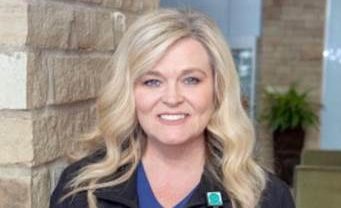Tesha Loven has been a nurse for 26 years. She is currently the Clinical Director of the Emergency Department at INTEGRIS Health Edmond. She says they’re prepared to handle an influx of COVID-19 patients, even though she hopes they never see one. “We wait on the edge of our seat wondering if ‘today is the day’,” admits Loven.

FLOAT POOL RNS, LPNS & RESPIRATORY THERAPISTS
(positions travel to all facilities as needed and earn shift differential)
The Float Pool
· RNs – up to $46/hr
· LPNs – up to $36/hr
· RTs – up to $41/hr
Temp Float Pool
· RNs – $44/hr
· LPNs – $34/hr
TO APPLY, EMAIL: [email protected]
OR GO TO www.indeedjobs.com/first-physicians-group/jobs
She understands there’s an element of danger to her job, especially when dealing with a novel virus that we don’t yet know much about. “I feel it’s important to not let fear define me. I must take control of the things I can and accept the things I can’t.”
In order to protect those she loves, Loven has made the conscious decision to stay away from her children, grand-children and parents until this crisis is over. “It’s very difficult, yet it’s a sacrifice many in the medical field are willing to make to keep our families safe.”
She adds, “Many of our caregivers are making far greater sacrifices than myself, they have small children so they have chosen to stay in hotels, RV’s or with other health care workers.”
She knows some in the health care profession feel like they didn’t sign up for this, that caring for people during a worldwide pandemic is too much to ask. “I know many nurses who have spouses who have told them that it is not their job to risk their lives for strangers and have requested that they walk away from the situation,” Loven says. “But thankfully, my husband supports me. He prays for me and my team and prepares us for battle. For that, I am thankful, and I am at peace in the role I play in this crisis.”
Loven says she will continue to come to work as long as there are people in need. “There will always be doctors and nurses who continue on with the mission. Although it will be overwhelming if others retreat, there will always be those who walk into the storm.”
That’s what she wants the public to realize. “Health care workers are being asked to sacrifice their time with family, their own mental, physical and emotional health. It is very dis-heartening to see members of the public congregating in large groups and proceeding with daily activities as if nothing is occurring around them.”
She concludes, “It is difficult to see the end in sight if the public does not comply with sheltering in place, social distancing, self-monitoring and self-quarantine when appropriate. Their actions have the biggest impact on the overall situation.”














